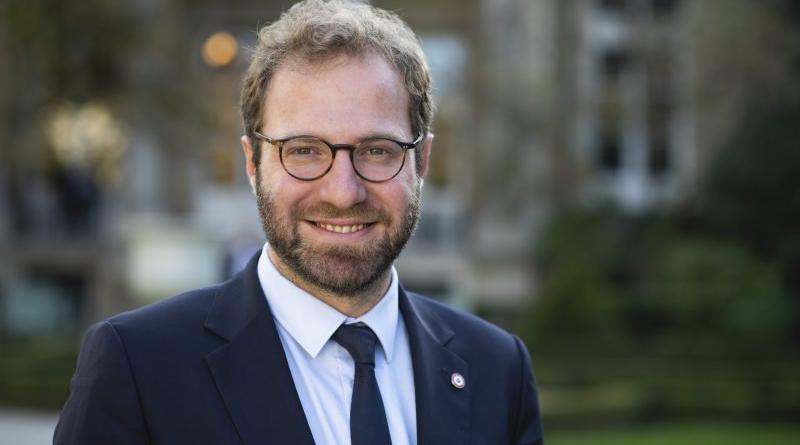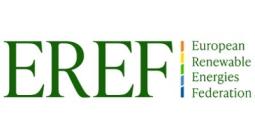Meet the MP who led an inquiry into France’s energy sovereignty

The French Parliament recently published the final report from a special inquiry committee looking into why France lost energy sovereignty and independence. EURACTIV spoke to its lead rapporteur, centrist MP Antoine Armand.
Read the original interview in French here.
After months spent interviewing experts and politicians, including two former French presidents, about France’s energy independence, Antoine Armand came to an unexpected conclusion: he was looking for something that does not exist.
“Energy independence does not exist and has never existed,” said Armand, who was the lead rapporteur for the French Parliament’s special inquiry committee set up last year.
Rather, sovereignty refers to “the capacity of a country to produce while being less dependent on others and therefore less vulnerable,” he told EURACTIV in an interview.
In his view, France has not suffered a “loss” but a “delay” in its energy sovereignty, as the ongoing energy transition will see the country leaving imported fossil fuels in favour of locally sourced low-carbon and renewable energies.
The special Parliament committee was set up in October last year at the initiative of the conservative Les Républicains party to examine the policies implemented in France’s energy sector over the past three decades.
In a series of hearings, the committee interviewed 88 stakeholders under oath, including energy experts, scientists, business leaders, and two former French presidents – Nicolas Sarkozy and François Hollande – a first for the country’s parliament.
A key fact that emerged from the hearings is that France is still heavily reliant on fossil fuels, despite its low-carbon fleet of 56 nuclear reactors. In 2021, more than 46% of France’s primary energy consumption indeed came from fossil fuels, according to government figures.
This is because a large share of the energy consumed in the country is not electricity based but is imported oil and gas, which dominate transport and industrial processes. Last year, France also experienced widespread failures across its nuclear power stations, which have suffered from chronic under-investment over the past decades.
‘The EU must play its part’
France is “still very dependent on fossil fuels, our electricity fleet is vulnerable, and the development of decarbonised sectors is prey to a very Franco-French debate opposing nuclear and renewable energies,” Armand said.
“The EU must play its part” to resolve these issues,” particularly in terms of the supply of materials”, adds Armand, who says this is why President Emmanuel Macron “often speaks of ‘European sovereignty’ instead of French sovereignty.”
According to Armand, European sovereignty means “strengthening national sovereignties” and not the other way around. He underlined “the principle of subsidiarity”, which stipulates that decisions must be taken as close as possible to citizens and involve the EU level only when it offers clear added value.
In France, the national debate on energy has often evolved around the role of renewables, which are often seen in opposition to nuclear energy – a source of national pride and independence.
So is the EU encroaching on member states’ sovereignty when it sets a 42.5% renewable energy target for Europe by 2030?
Armand acknowledges that such targets have “consequences for the energy mixes of the member states,” whereas this is supposed to be a national competence in the name of the European principle of ‘technological neutrality’.
But, according to him, the bigger objective is decarbonisation, not renewables. “If the European objective is carbon neutrality, let’s not look at the problem in reverse: let’s start from the objective of decarbonisation rather than from a technological bias,” he adds.
“Especially when some member states think it is right to exclude nuclear power from the European objectives, even though it is a decarbonised energy, they are scoring an own goal,” he argues.
EU countries are divided on nuclear, with France and a dozen other member states supporting its formal recognition to meet EU climate goals, while others, including Germany, Austria and Spain, are fiercely opposed.
In a foreword to the French inquiry committee report, right-wing MP Raphaël Schellenberger slammed Germany’s unilateral decision to exit nuclear power, saying it “creates a precedent that will have repercussions” on France’s energy policy.
Armand, for his part, refuses to blame Germany.
“We should not blame our neighbours for what we have done. That is populist and anti-European. The EU is simply a field of influence,” he said.
However, he admits that “the closure of reactors shows that, in some countries, the priority is not to get out of carbon as quickly as possible,” saying German policy choices have “undoubtedly” played a role in the French decision to close the Fessenheim nuclear power plant, which became effective in June 2020.
“The only thing we know for sure is that the closure of Fessenheim was not based on industrial, technical, economic and safety considerations,” added Armand.
At the same time, the French centrist MP refuses to accuse the EU of being anti-nuclear, saying European decisions result from tripartite negotiations involving member states, European Parliament and European Commission.
“So there are no decisions against the member states,” he said.
Armand also reminded that the 1957 Euratom Treaty, which promotes research and safe use of nuclear power, demonstrates that EU cooperation on nuclear continues to exist.
However, the treaty is “no longer at scale economically,” he adds, saying that further initiatives are needed to support the development of Europe’s nuclear industry.
“If the EU does not wish to develop a larger budget [for nuclear], then let us multiply interstate cooperation along the lines of the ‘nuclear alliance’ led by France, which brings together 11 member states,” Armand suggests.
“And if EU competition policy at times weakens our industrial capacity and is not capable of preserving our energy supplies, then it must be changed,” the MP added. “This is one of the six lessons of my report: energy is not a commodity like any other that can be traded on a deregulated market.”
In his report, Armand also denounces the French “illusion” when it comes to the country’s electricity production capacity, which hides the surge in electricity demand projected in the coming years due to the decarbonisation of the economy.
“As a result, we are now faced with an ‘energy wall’,” Armand says, which implies scaling up electricity production in Europe to an unprecedented scale to meet future electricity demand.
In terms of energy security, this means opening new mines in Europe so that local companies are capable of producing wind turbines, batteries and solar panels on European soil without being dependent on foreign imports.
“If there was one takeaway from this report, it is that we are facing this ‘energy wall’,” Armand said.
[Edited by Frédéric Simon/Alice Taylor]
cover photo: "If the European objective is carbon neutrality, let's not look at the problem in reverse: let's start from the objective of decarbonisation, rather than from a technological bias," said Armand. [Antoine Armand]





